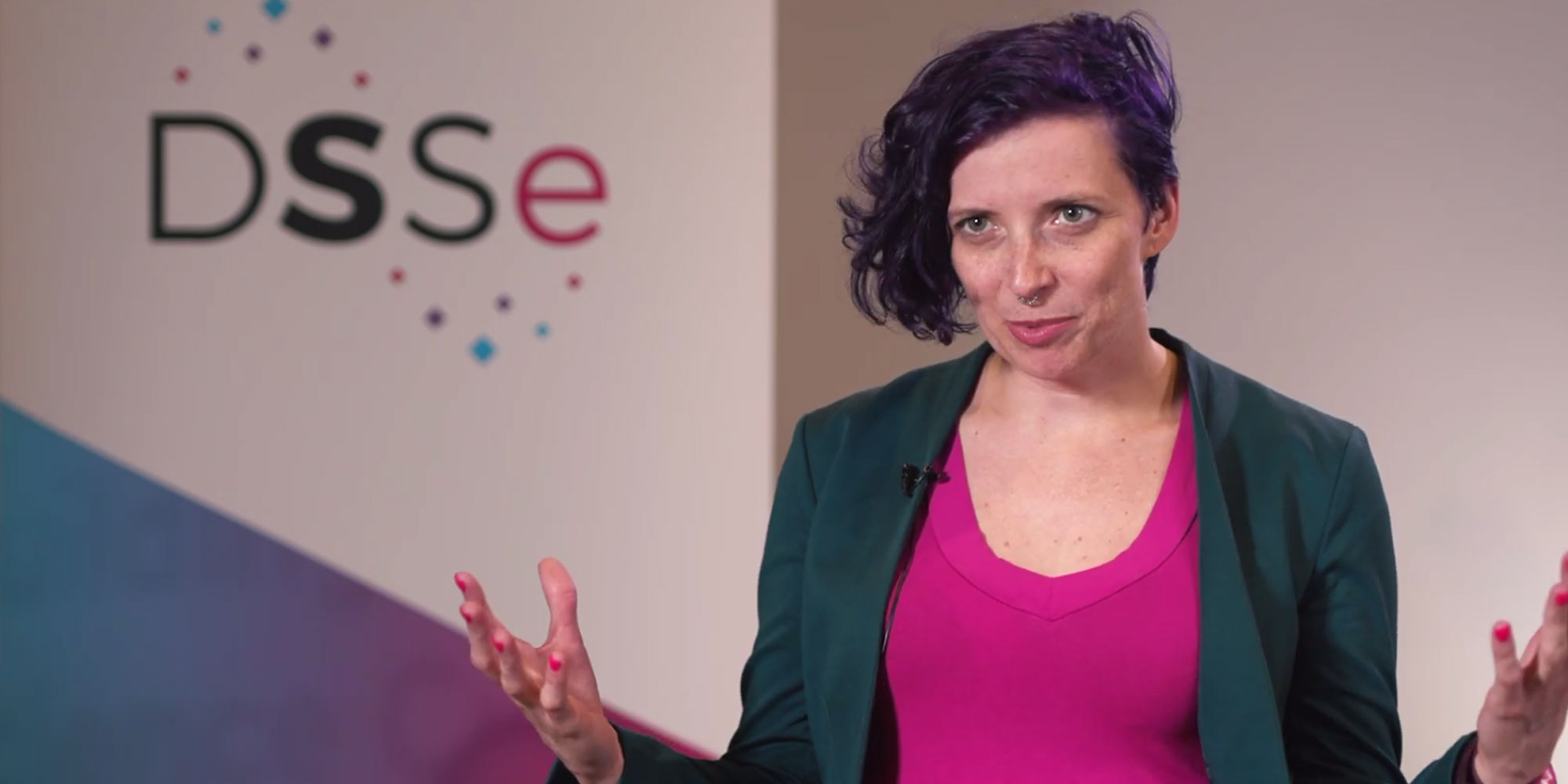“I believe that if we work hard to understand, together we can realize a better world. We need one another, because individually we do not know very much.”
This piece of wisdom from RJ Andrew’s novel. “In Info We Trust” was just one of many gems put forth by the enlightened group of women that lit up DSSe’s Slack Channel on Tuesday night. DSSe stands for Data Science Salon Elevate, an initiative which focuses on empowering women in data science.
Tuesday night’s event marked the inaugural release of DSSe’s monthly forum, Tuesdays Together. On the second Tuesday of every month, the channel will host an hour long discussion inspired by the month’s theme starting at 7pm EST. This month’s was imposter syndrome. The main objective of Tuesdays Together is to cultivate a vibrant community around the clock where data-inclined women can come to share accomplishments, ask for advice, and receive consistent support from each other.
The only way to capture the true essence of Tuesdays Together is to show up, but we’ve captured the major highlights here. Hosts Danielle Oberdier, Content Manager at Formulated.by and esteemed data visualization expert Mollie Pettit welcomed a passionate group of professors, market researchers, experienced data practitioners and students just now embarking on their data-fueled journeys. The bulk of the hour’s discussion evolved into a refreshingly transparent discussion of the ways in which the group has been affected by imposter syndrome and the ways in which they have learned to rise above it.
This post is part of DSSe, an initiative to elevate the voices of women in data science.
{{cta(’25cf97ea-c55c-4997-ad7c-a072541f1949′,’justifycenter’)}}
Career shifting was a popular theme in the chat, because many people feel insecure about their place in an industry when they are new to it. Many participants told empowering stories about shifting careers, saying that they might have been intimidated at first, but grew to appreciate the diversity their past experience brings to a new industry. Mollie’s shift from geology to data science inspired other participants to share their own stories. Rita Mitra, Professor of Cybersecurity at University of Texas San Antonio, felt from her own experience that “moving from the music field to computer science was difficult. But in all honesty, I felt like an imposter in the music field as well, and I have a terminal degree there! So I think for me, it’s as much an internal mechanism as any outward shift in jobs or careers.” Remembering that imposter syndrome can strike whether you’re a novice in a field or at the pinnacle of your career can be reassuring. Engaging feelings of imposter syndrome is a choice and everyone can choose whether or not to succumb, separate from whatever external factors may be triggering the feelings.
Many participants made the connection between advancing further and further in the field while simultaneously realizing how much they don’t know. Even the strongest of professionals can be vulnerable to imposter syndrome. As Mollie said, “It seems that no matter the point I am in my career, imposter syndrome will routinely creep up on me. But I think this is related to what I said before. I advance in my career, I learn more, I realize how much I don’t know. Imposter syndrome creeps in. When that happens, I try to do my best to remind myself the strides I’ve taken and the things I’ve accomplished. What do I know this year that I didn’t know last year?”
In a world where each individual’s network is a priceless commodity, most savvy professionals are realizing that such a presence is best built by banding together. Daria Malone, Public Health Analyst and Northwestern University graduate summed this up perfectly, saying, “One thing I was taught at a very young age is to look for allies and to share your resources with other women and POC. This is how we build our own network.” Beyond sharing tangible resources, Amar Natt, Managing Director at Econ One Research, shared her belief that being honest about one’s own struggles with imposter syndrome can serve as the ultimate support for people beginning their careers in data science. “I think one thing we can do is admit that we have it too, especially when we’re mentoring less experienced colleagues,” she said.
When asked what advice would best serve women in the field experiencing imposter syndrome for the first time, Rita said to focus on the work. “Being able to constantly learn is much more valuable than the knowledge you already have, especially in a technical field! You’re never not learning new ‘stuff’ and your prior experience can only enhance your current field, in sometimes counterintuitive ways.” Danielle agreed, saying, “You’re experiencing this feeling because your work is IMPORTANT to you and you want to do well. It can be hard to communicate to your superiors that you’re experiencing imposter syndrome, but because discussions like these are happening and people are becoming more aware of the term by giving it a face and name, you can face it head on and after that, move on.”
Join us for our next DSSe slack chat on Tuesday, March 12th at 7 PM EST. Theme: Career Paths

